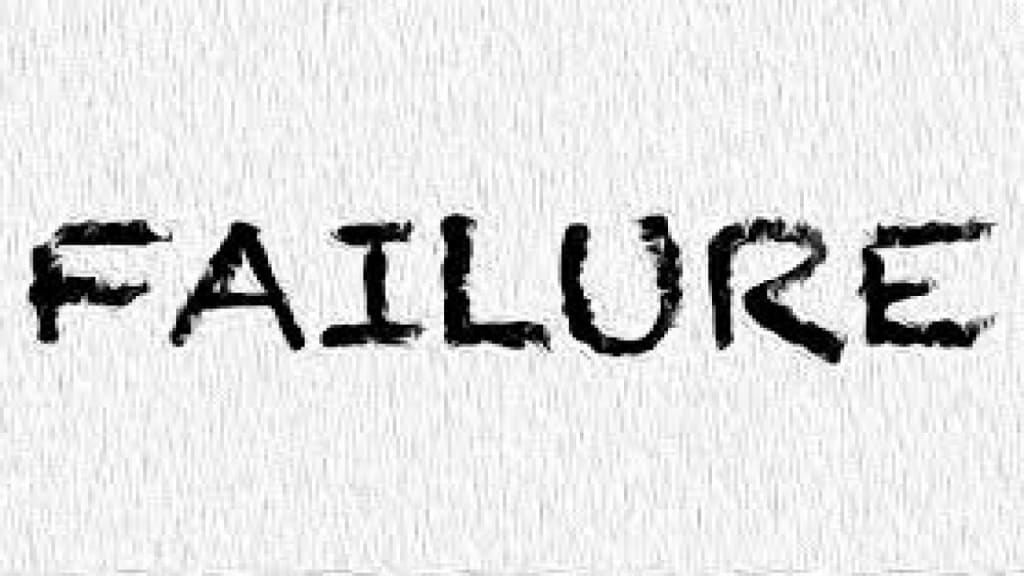Not Learning From Failure- the Greatest Failure of All
A summary and discussion of a 2019 research article

Whether it be a test, a business endeavor, a relationship, or a new skill, everyone has experienced failure; it is an integral part of life, though often one that people will go to great lengths to try and avoid. But failure is how we grow, right? A 2019 study by Lauren Eskreis-Winkler and Ayelet Fishbach discussed this phenomenon, and how experiencing failure can actually make people less likely to learn from their mistakes, as well as how to change that in order to learn for the future.
Last year, researchers looked at the societal belief that failure is a part of learning, and pitted that concept against five other studies that showed that failure instead gets in the way of learning. In conducting their own series of 5 studies, they asked why this might be. Researchers asked 329 participants to engage in situations of failure in the workplace, answer written questions, either receiving or not receiving immediate feedback about their answers. Participants in the first of five experiments received either praise or criticism about the first 4 correct or incorrect answers they gave on a variety of questions, receiving no feedback at all on the other questions
In the second experiment, participants received feedback on every question they answered, one group receiving notifications when they were correct and the other group when they answered incorrectly. There were four variations of this experiment, testing for differences in responses depending on the nature of the questions (using symbols or social situations), offering different amounts of money for correct answers to encourage effort, and giving the correct answers or not after a question was answered incorrectly. In all of these variations, the results concurred with one another: those who received failure feedback learned less as the experiment went on, compared to participants who received success feedback.
The third experiment tested whether or not it mattered if participants got any feedback about their failings. Participants that failed a question were either told or not told about their incorrect response, and then asked to recall their previous answers at a later time. Those who were told when they were wrong recalled fewer of their prior answers compared to participants that were not told when they got a question wrong, leading to the conclusion that knowing you failed right away leads to immediate tuning out from the task at hand.
Eskreis-Winkler and Fishbach also explored whether the participants' egos would help or hinder their likeliness to learn from their mistakes, or the mistakes of others. To do this, the fourth experiment replicated the second experiment exactly, but also asked participants to report how undermined their egos felt after completing the questions. The participants that were told when they failed reported feeling very undermined, whereas those who were told about their correct answers did not feel undermined at all. Then, in experiment five, participants were again asked a short series of questions, and told which ones they got right or wrong. But in this case, one group of participants were given their own feedback, and the other group received feedback about answers that a different participant had given. Both groups then completed the same test a second time, with the same questions. Comparing the groups, those who received feedback about someone else’s answers (both correct and incorrect) remembered more and correctly answered more questions on the second test, compared to the participants who received feedback about their own correct and incorrect answers.
Across these five separate experiments, participants who received feedback about their failure learned less than those who received feedback only about their successes. Even though they were receiving the same feedback, those who were told about what they did correctly as opposed to what they did incorrectly ended up being more motivated to keep learning. Psychologically, this is because being made aware of one's own failure is threatening and uncomfortable for the ego. When we as individuals are told we were wrong about something, we tend to shut down and retreat in an effort to preserve our feelings and self-esteem. We stop trying, and therefore stop learning.
However, the negative effects of failure can be mitigated, as the article discusses. Failure hurts less when we experience it through vicarious experiences (learning from watching others make mistakes), or by removing ones ego from the situation of failure. By removing the ego's involvement, we are able to say "I failed at this task, but I am not a failure". This thinking lessens the blow of failure, and helps learning take place. Similarly, if we watch someone else make a mistake, it doesn’t hurt our ego yet we can still learn what didn’t work, and know to try something else ourselves.
Overall though, the article stresses that the most effective way to encourage learning is to experience the situation or task oneself, and have feedback framed in terms of success, or what the individual is doing correctly. By emphasizing the positive aspects of the situation, whether in school, work, social relationships, or hobbies, feedback is more readily and enthusiastically accepted and one is more likely to learn from what they have accomplished. Even if you fail at some parts of a task and succeed at others, hearing about the things you did right make you more likely to learn from the whole experience, not just the things you did right.
So, contrary to what we as a society have been told for decades, failing itself doesn’t actually help us learn. When the experiences are negative, embarrassing, or uncomfortable, we retain less information in an attempt to block out the discomfort. However, when the experience is portrayed in more positive ways, even if we did fail a little, we are more willing and able to retain information. Has this study changed the way you think about failure? Are you more likely to give someone positive feedback instead of pointing out the flaws? Next time you feel like you're failing at something, remember to take your ego out of it, and you may just be able to learn something.
About the Creator
Kiersten Fox
Constantly searching for new ways to challenge myself and develop new writing skills. I mainly write poetry, but also enjoy summarizing psychological journal articles. Thank you for exploring my work!






Comments
There are no comments for this story
Be the first to respond and start the conversation.